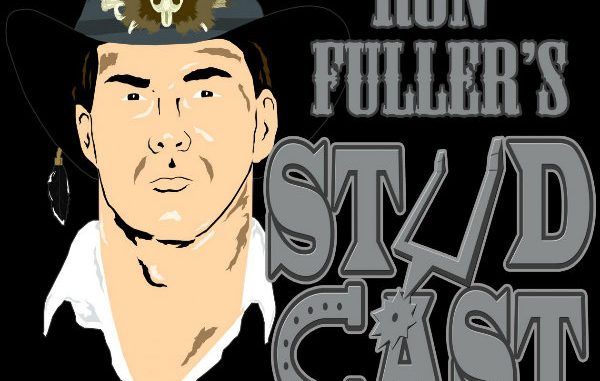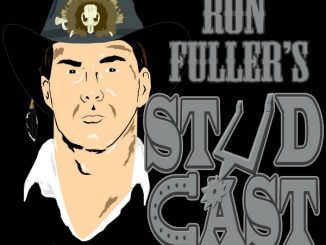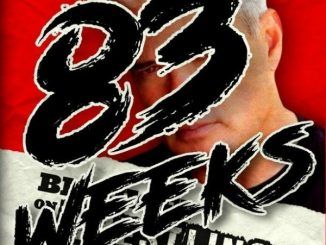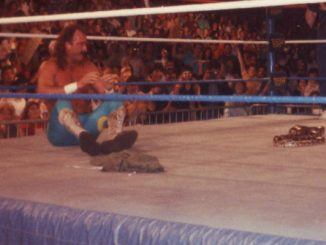
Ron Fuller’s Studcast – Fantastic To Finished
Release Date: 11/28/18
Running time: 1:07
Recap by: Joe Aguinaldo
DIRECT LINK TO LISTEN/DOWNLOAD
Intro
Ron talks about his year in wrestling during 1973.
He started going to Australia, wins the Southern Heavyweight Championship and Florida Tag Championship, becomes a star in St. Louis, wrestled in Madison Square Garden and wins the Georgia Heavyweight Championship.
He was getting weary from the road and started getting injured.
He was feeling beat up in the summer and at the end of the year he thought about looking for a new line of work.
He’s making a lot of money but had knee injuries and surgeries. He would have given up some money not to have those injuries.
In January and February, he’s in Australia but working too many matches and accumulating nagging injuries
When he comes home he wins two titles but defends them too often. All the additional injuries and travelling are starting to add up.
In St. Louis, he’s working stiffer competition. He’s getting even more injuries, travelling a lot and spending more time away from his family.
Working at Madison Square Garden is a great honor but it comes with great pressure to have great matches.
Because he’s away from Florida, it’s beginning to affect his drawing ability in Florida which affects his status with the booker and reduces his number of bookings and his payoffs.
By the time he wins the Georgia title in December, he’s not sure if this is worth it. He’s gets his Florida real estate license. He also starts another business building septic tanks for new homes.
He’s lost. As a young guy he’s never been this pushed and this over and it’s hard for him to adjust.
Injuries and Pressure
A lot of fans don’t have any idea what you do with injuries when you’re a wrestler. Back in 1970 you were 100% responsible for injuries. Promoters didn’t help.
When Fuller became a promoter, he paid for Jos Leduc’s hospital bill after getting hurt from an angle.
You couldn’t get insurance as a wrestler and you also have to rehab yourself from an injury. It was expensive and out of pocket. If you got a bad injury and we’re out for months you could have a hard time surviving.
All transportation and hotel costs were also out of pocket. If you missed a show, you wouldn’t get paid even after having paid for all your transportation and hotels.
Top guys would travel early during the day to make sure they had a chance to make the card.
There’s different kinds of pressure when you’re a top guy or the main event. If you’re on the first match and don’t make the card it’s not a big deal but if you’re near the top of the card or main event it’s a big thing if you don’t show up. You’ve got the pressure of having a great match no matter who you’re with.
There’s pressure of working with an injury because you’re going to be hurt but can’t hold back. The pressure of all that is difficult and it was hard to adjust to that.
At this point Ron is 25 years old. He’d twisted his knee one night and had to drive for three hours. This caused his knee to swell up. The next morning, he could hardly straighten his leg and he knew twelve hours later he was going to wrestle Gene Kiniski in St Louis. He didn’t book his transportation early and found that weather conditions in Atlanta and St Louis were not ideal (snowstorm). He knew he would have to wrestle on that knee. If he missed the flight he wouldn’t make the show and his plane ticket would be worthless. Plus, he would lose a big main event payoff and didn’t know how long it would take him to get that high on a St. Louis card again. He worried about all this for ten hours. That’s pressure.
Being on the road with an upper body injury wasn’t too bad, but anything below the waist where you had to keep your leg bent for an extended period of time could be a problem.
As time went on, Ron started to get knee injuries and would get his knees drained. His doctors would tell him not to wrestle for two weeks but he would wrestle that night and go right back to the doctor the next day. This happened all the time and it was part of what you had to do.
The 1973 Oil Embargo
In 1973, there was an oil embargo due to the Israel/Arab war. The US backed Israel and the Arabs stopped selling oil to the US. It was a tough time for everybody.
This was also tough for wrestlers because they drove everywhere. It created a stressful situation because you had to keep an eye on your gas situation. Also gas prices tripled.
Ron thinks the major gas companies in America were trying to take over the industry and squeeze out the smaller independant gas companies.
If a wrestler knew they had to drive a long distance, they would call fans they knew to pick up some gas for them so they could drive back home.
During the embargo, speed limits went down to conserve gas which was an issue for wrestlers who were used to driving fast to get to the next shot.
Ron Almost Quits Wrestling
In 1973, Ron is having a great year professionally but isn’t happy and is questioning if wrestling is for him and whether this is worth it. While he’s taking off in wrestling, it feels like he’s going to crash at home as he was away from his family for long periods of time.
He’d been in the Florida territory for three years when he should have been looking for some place else to go such as the Carolinas, where he never worked.
Because he’s going to places such as St. Louis, he’s not being effective in Florida. He’s not making the cards in Florida. In the first half of 1973, he was being booked a lot but at the end of the year, he’s not being booked that often and starts questioning if they want him in the territory.
Other members of Ron’s family questioned whether it was worth it to be in wrestling. His father had great success in wrestling but wanted to be a farmer. He would build a territory but would lose interest once he did and would want to go back to being a farmer.
Louie Tillet was the booker in Florida when Ron was wrestling. At the time, Ron thought Louie had lost confidence in him. However, Ron thinks he lost confidence in himself.
When Ron became a promoter, the first booker he hired was Louie.
Ron was overwhelmed during ‘73. He got his Florida real estate license and also got into a business building septic tanks. However, right after Ron got into the septic tank business, the embargo happened which effected things because they needed resin which was an oil-based product. They wouldn’t be able to get resin which meant they couldn’t build septic tanks.
Bill Watts
The Atlanta Wrestling war had started. Bill Watts was going to make a move from Georgia to book in Florida. Watts was aware that Ron wasn’t being used there.
Watts chose Ron as the guy he wanted to put over for the strap. Ron thought it was a one-time deal, but Watts loved the match they had and figured Ron could wrestle other guys.
Watts called Ron and said he wanted be tag partners. Down the road, Watts would turn on Ron for big money.
When Watts came into Florida in 1974, Ron started being used. He went from thinking he was done to being stronger than ever in Florida.
Watts changed his life and got him back into wrestling, which led to Ron becoming a promoter and making this a lifetime career.
There were no issues with Eddie Graham, even though he wasn’t being booked. Ron doesn’t blame Louie. He was a businessman and was responsible for drawing houses and putting the best talent in the ring. Ron’s availability wasn’t there and he couldn’t be pushed because he wasn’t available enough to push.
The Forgotten Territory
When Ron ran wrestling with Continental, they didn’t save tapes. They used them again and again. Ron didn’t have a library of wrestling shows. However, they found someone in England who had tapes of Southeastern and Continental Wrestling from 1984 to 1988. Ron is almost ready to release these tapes and will start selling them. They’re setting up a website for fans to order these shows. He’s calling these tapes “The Lost Territories.”
Check out www.oldschoolprowrestlingdvds.com.
Review: This was an awesome podcast. Hearing about what it was like to be a wrestler back in the 70s was great and it’s amazing to see how much the business has changed over the last 45 years, especially when it comes to injuries. Ron describing the different types of pressures and putting this all together was really interesting, as was the story about the 1973 oil embargo and how it affected pro wrestling. If you could only listen to three podcasts this week, I’d recommend this as one of them. Excellent stuff. Rating: 8.5/10
About Joe:
Joe is a long time wrestling fan from Toronto. He’s a co-host on The Pull Apart: The Pro Wrestling Podcast Podcast with Jeff Rush and Caitlin Lavelle, available to PWTorch VIP Members. A life goal of his is to be a guest host on one of Wade Keller’s post-show podcasts. He doesn’t consider himself any sort of expert, he just likes wrestling. Check him out on Twitter and Instagram @ja113




Be the first to comment